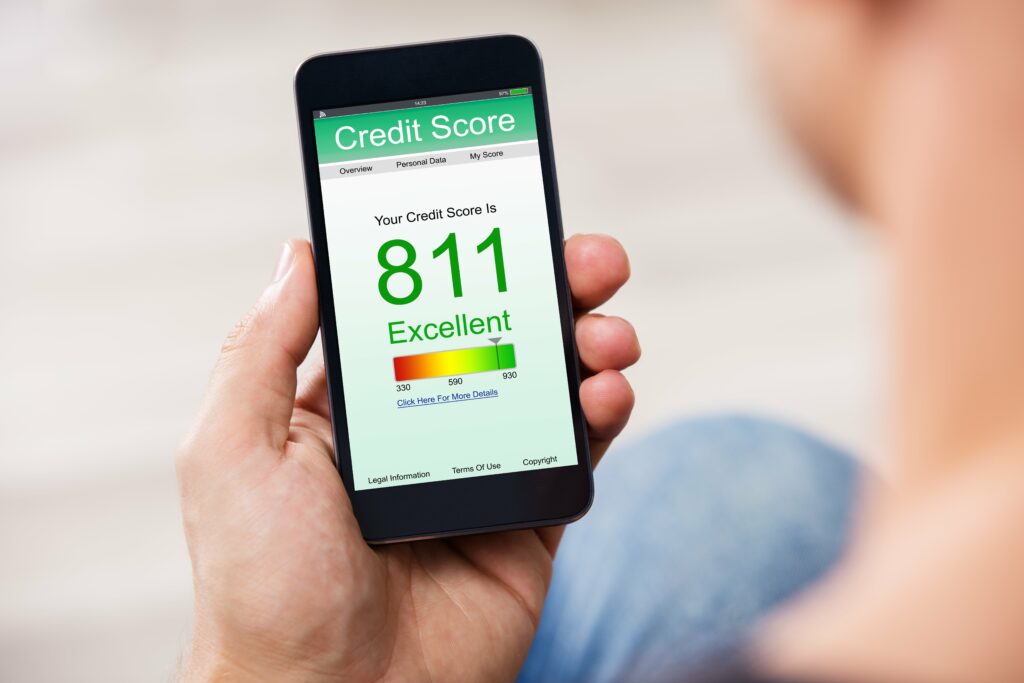Credit bureaus design credit scores to help lenders easily decide borrowers who can repay loans. Lenders or financial institutions always want to know the risk to expect in borrowing your money. Therefore, they look at your borrowing history, which credit bureaus represent numerically (credit score). What credit score is, how it works, types of credit scores, etc are all-inclusive in this article.

What is a credit score?
Credit score simply gives lenders a quick general idea of borrowers’ creditworthiness. The credit score does not discriminate against anyone by looks or actions. You only get what you deserve. The credit score is also the numerical expression that describes a person’s credit files. The credit bureaus provide lenders with credit scores. This helps lenders to know borrowers who can repay a loan before they offer it to them.
If your credit score is good, they will give you the loan. But if it is bad, they will deny you the loan or suggest the form of credit that suits you. For example, they would want to know if you pay back the loan you borrowed before. Besides that, they also want to know your repayment behavior over time across all your previous debts.
How does credit score work?
Knowledge of what credit score means isn’t enough. As a borrower, or someone who doesn’t know what the future holds. You might want to know how the credit score works. Or who calculates your credit score? However, let’s dwell on how credit scores work.
Your payment history causes your credit score to rise or fall. When you pay your bills on time, your FICO score goes up. Besides that, early payment of your mortgage, student loan, car loan, and credit card reflects on your credit score. If you ensure you pay these loans timely, your credit score will get stronger. However, if you cannot repay those loans before 30 days or more, your credit score will fall. Besides that, you might risk losing about 100 points or more of your credit score.
Besides payment history, your credit card debt also influences how your credit score works. Your credit score suffers if you incur too much credit card debt. Hence, the more you reduce your credit card debt, the better your credit score gets.
Again, the age of your credit affects how your credit score works. The older your credit score, the better your credit score gets. Also, having a variety of credits positively affects your credit score. If you only have one type of loan, maybe just a credit card debt. It can hurt your credit score.
Finally, sometimes your credit will experience a negative impact whenever a bank or lender checks your credit. They check your credit score when you request a new loan or credit card. And this will deduct about 5 points of your credit score or less.
What are the types of credit scores?
After seeing how the credit score works. It’d be cool to know the credit scores and what they mean.
There are mainly two types of credit score. They are; generic scores and custom scores.
The following explains the two credit scores:
- Generic credit scores
Many lenders and businesses use generic credit loans to determine general credit risk. With this type of credit score, you can get your generic score as one score with just one formula. And this goes across all three credit reporting agencies.
- Custom credit scores
Individual lenders often use this type of credit score in determining the borrowers who can repay the loans. They depend on the information about your account history, and credit report that they get from their portfolio.
The custom credit score is usually unique to a specific business or a specific type of business. A type of lending such as an agricultural loan, personal loan, or personal loan can adopt the custom credit score.
Why does my credit score differ from bureau to bureau?
Credit scores usually differ from one credit bureau to the other.
The following are the reasons credit score differs across credit bureaus:
- Many credit score brands
- Score variations
- Generation of scores in commercial use
Will checking my credit reports affect my credit scores?
Making too many credit requests affects your credit score. Because of this, you would want to know if checking your credit report will affect your credit score.
Well, checking your credit report from credit bureaus will not affect your credit score. This is because whenever you check it, a ‘soft’ credit inquiry will appear on that report. And this does not affect your credit scores. The credit score in models like FICO and Vantage score will not see the soft inquiry. Besides that, hard inquiries that scoring models can see won’t affect your credit score.
Conclusion
Credit score ensures that the risks lenders face in lending money to borrowers are low. At a glance at any credit score, lenders can see the borrower who can repay whatever type of loan they get. This makes the work of lenders a lot easier and free of avoidable regrets along the way. However, every borrower should always strive to repay all their debts on time. This is because a bad credit score could prevent you from accessing loans in the future